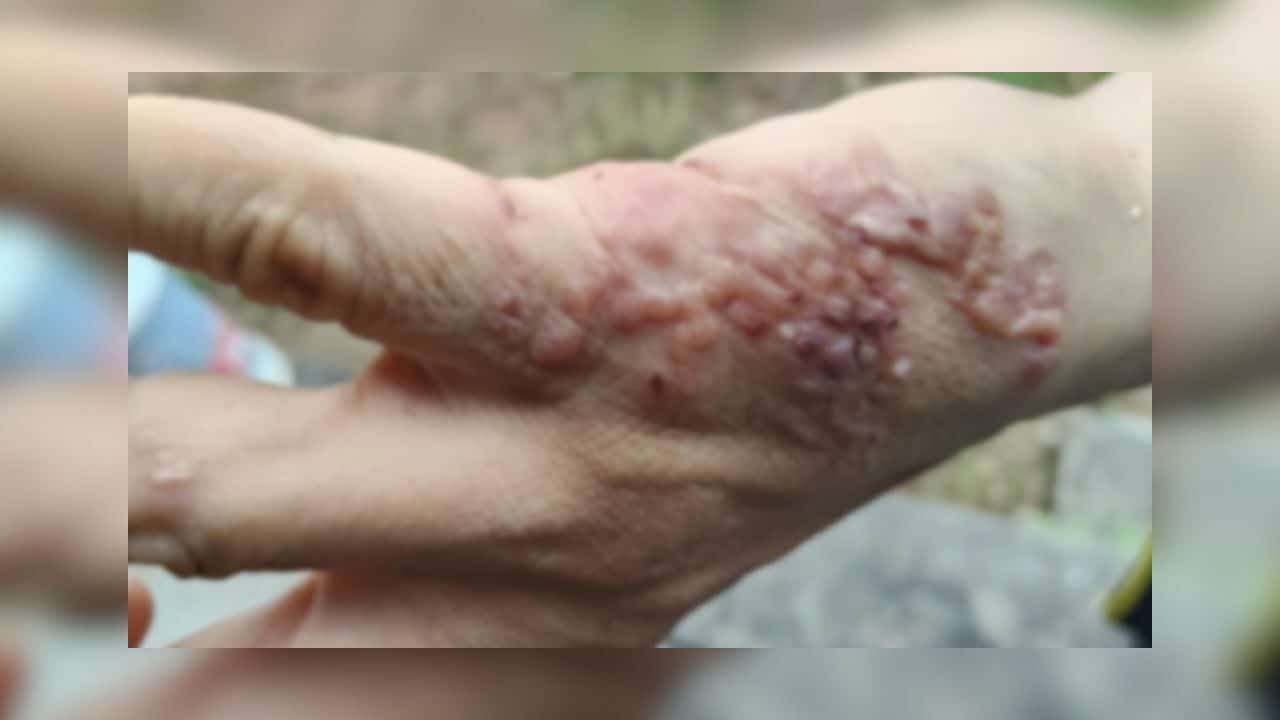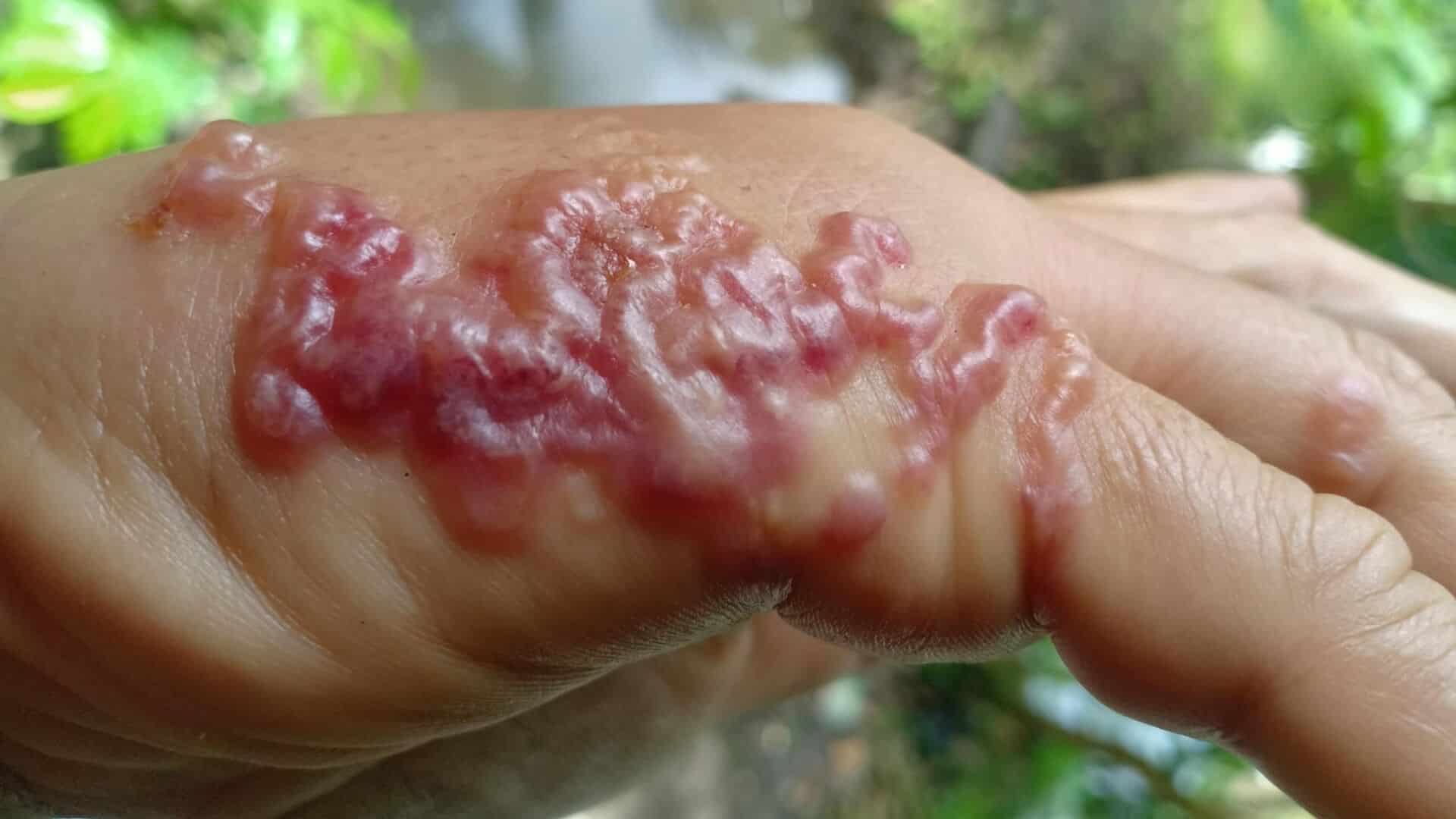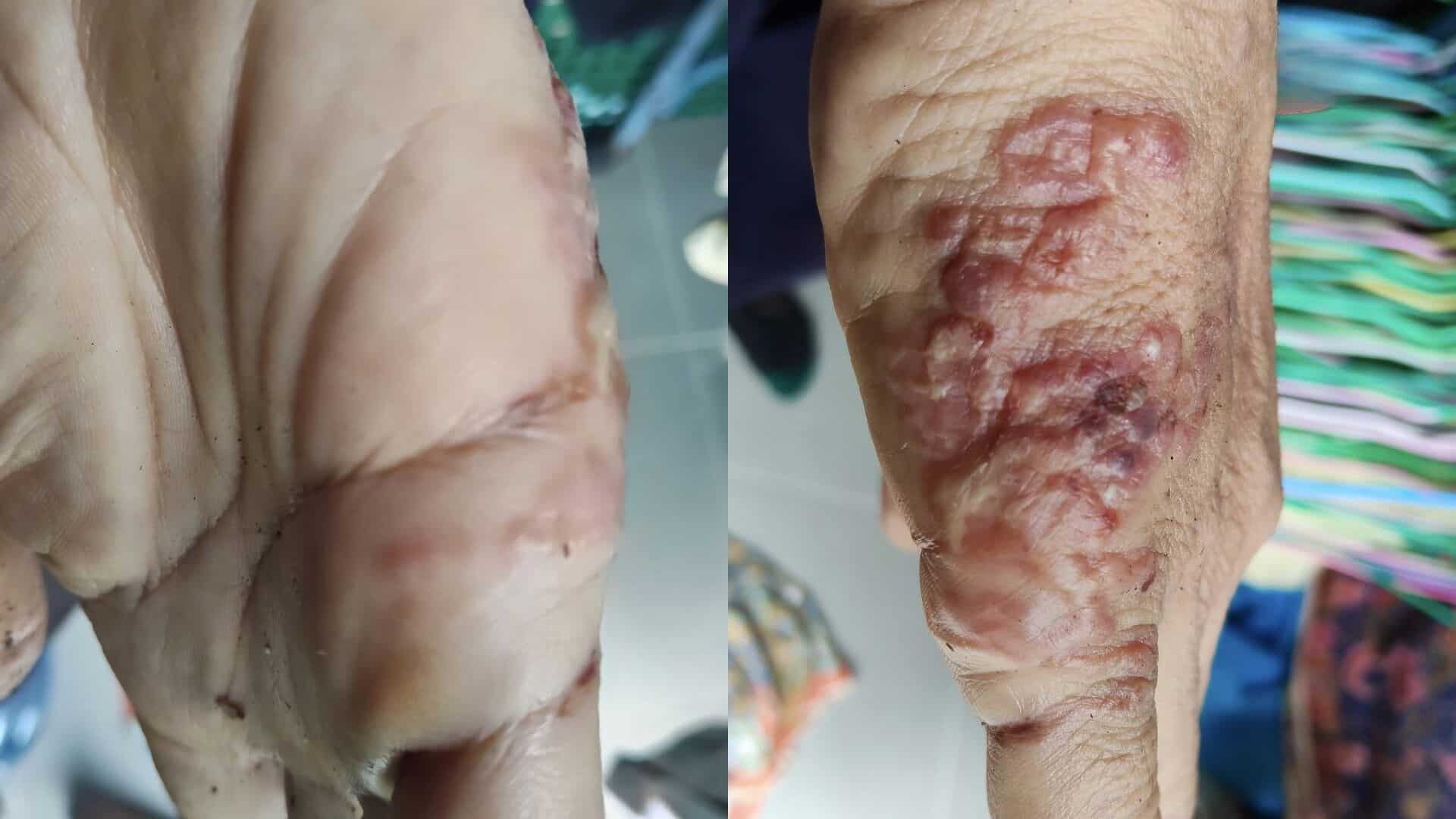Thai man’s mysterious skin blisters revealed as ‘skin worms’
'Skin worms' are caused by hookworm larvae from contaminated animal faeces

A shocking Facebook post showing a man’s hand covered in painful, pus-like blisters has left many people guessing, only for doctors to reveal the bizarre cause: skin worm larvae, also known as Cutaneous Larva Migrans (CLM).
The unusual condition, often referred to as “skin worms,” is caused by hookworm larvae that typically come from animals like dogs and cats, especially when in contact with soil or sand contaminated by animal faeces.
Assistant Professor Dr Natthakaphat Rattanapitoon, an expert from the Parasite Disease Research Centre at Suranaree University of Technology, explained that CLM occurs when hookworm larvae, such as Ancylostoma braziliense and Ancylostoma caninum, enter the human body through the skin. The larvae hatch in soil or sand, typically found in areas contaminated by animal waste, and can burrow into the skin, causing the characteristic winding rash.

The Facebook user, who posted a picture of his affected hand, shared that he had spent the day pulling out weeds. That night, he began to feel severe itching, and when he woke up, he discovered blisters moving under his skin—an unmistakable sign of CLM. These blisters are not life-threatening but can be incredibly uncomfortable, often moving a few millimetres to 2 centimetres per day while causing intense itching.

Dr Natthakaphat explained that the disease is not typically fatal and usually heals on its own within two to eight weeks, but treatment to relieve itching and discomfort is often necessary. The infection is more common in tropical regions like Thailand, particularly among children or those working in the soil.
Prevention is simple but crucial: avoid walking barefoot in contaminated soil or sand, sit or lie on a mat or cloth, wash hands regularly, and properly dispose of pet waste. Regular veterinary check-ups and deworming for pets are also recommended to reduce the risk, reported Channel 7 News.
“If you notice any unusual symptoms or suspect CLM, it is important to consult a doctor for proper diagnosis and treatment,” the doctor warned.
CLM serves as a reminder of the importance of hygiene and the risks of coming into contact with contaminated soil, particularly in tropical areas where the condition is prevalent.
Latest Thailand News
Follow The Thaiger on Google News:


























